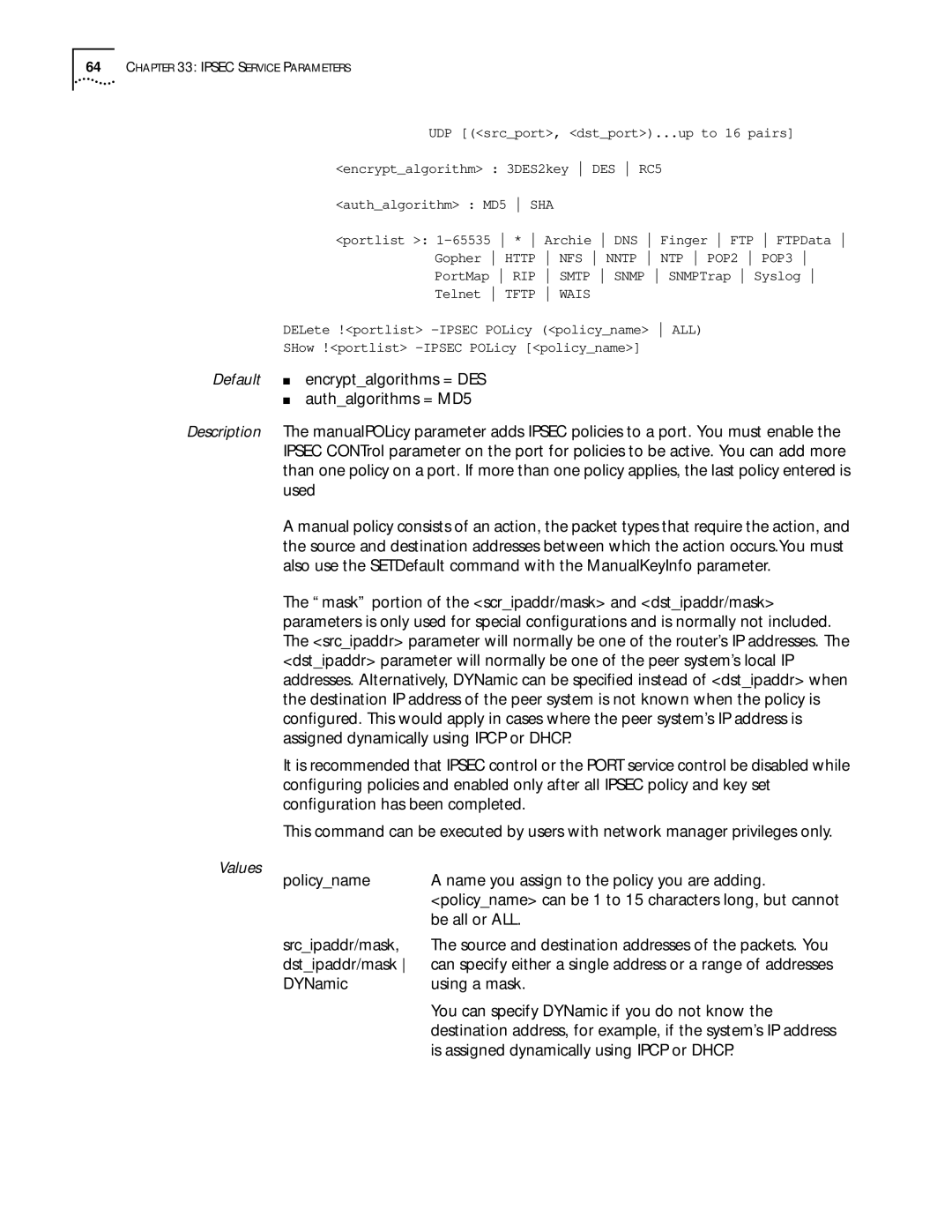64CHAPTER 33: IPSEC SERVICE PARAMETERS
UDP [(<src_port>, <dst_port>)...up to 16 pairs]
<encrypt_algorithm> : 3DES2key DES RC5
<auth_algorithm> : MD5 SHA
<portlist >:
DELete !<portlist>
SHow !<portlist>
Default ■ encrypt_algorithms = DES
■auth_algorithms = MD5
Description The manualPOLicy parameter adds IPSEC policies to a port. You must enable the IPSEC CONTrol parameter on the port for policies to be active. You can add more than one policy on a port. If more than one policy applies, the last policy entered is used
A manual policy consists of an action, the packet types that require the action, and the source and destination addresses between which the action occurs.You must also use the SETDefault command with the ManualKeyInfo parameter.
The “mask” portion of the <scr_ipaddr/mask> and <dst_ipaddr/mask> parameters is only used for special configurations and is normally not included. The <src_ipaddr> parameter will normally be one of the router’s IP addresses. The <dst_ipaddr> parameter will normally be one of the peer system’s local IP addresses. Alternatively, DYNamic can be specified instead of <dst_ipaddr> when the destination IP address of the peer system is not known when the policy is configured. This would apply in cases where the peer system’s IP address is assigned dynamically using IPCP or DHCP.
It is recommended that IPSEC control or the PORT service control be disabled while configuring policies and enabled only after all IPSEC policy and key set configuration has been completed.
This command can be executed by users with network manager privileges only.
Values
policy_name | A name you assign to the policy you are adding. |
| <policy_name> can be 1 to 15 characters long, but cannot |
| be all or ALL. |
src_ipaddr/mask, | The source and destination addresses of the packets. You |
dst_ipaddr/mask | can specify either a single address or a range of addresses |
DYNamic | using a mask. |
| You can specify DYNamic if you do not know the |
| destination address, for example, if the system’s IP address |
| is assigned dynamically using IPCP or DHCP. |
